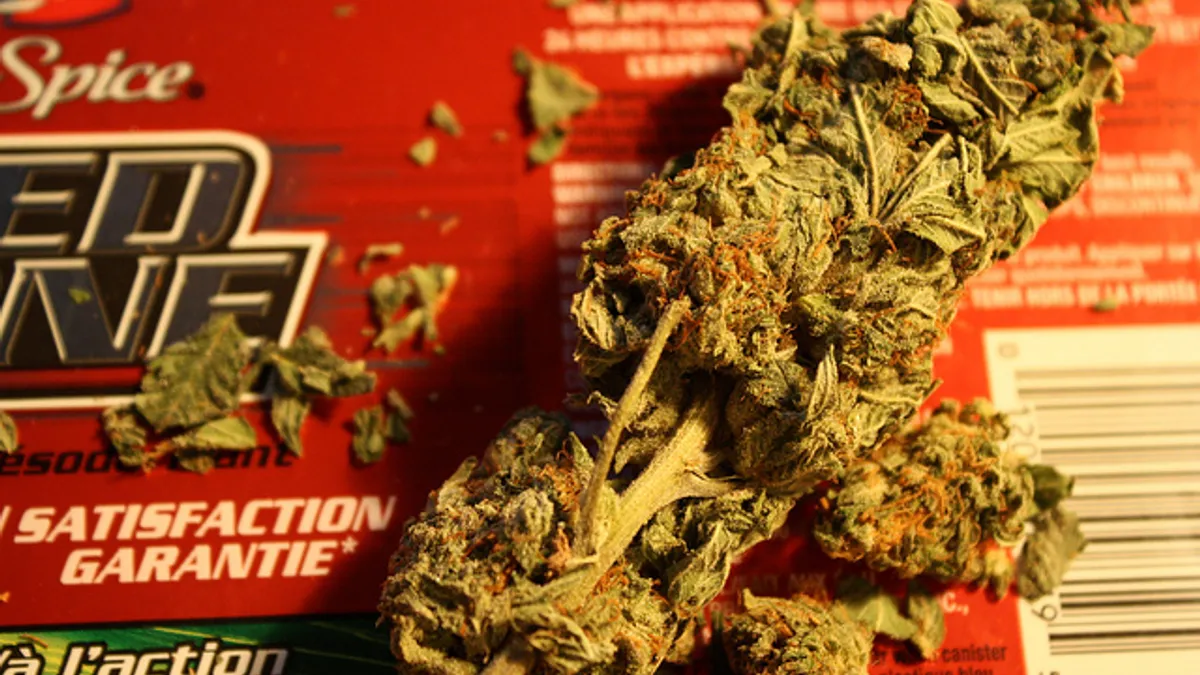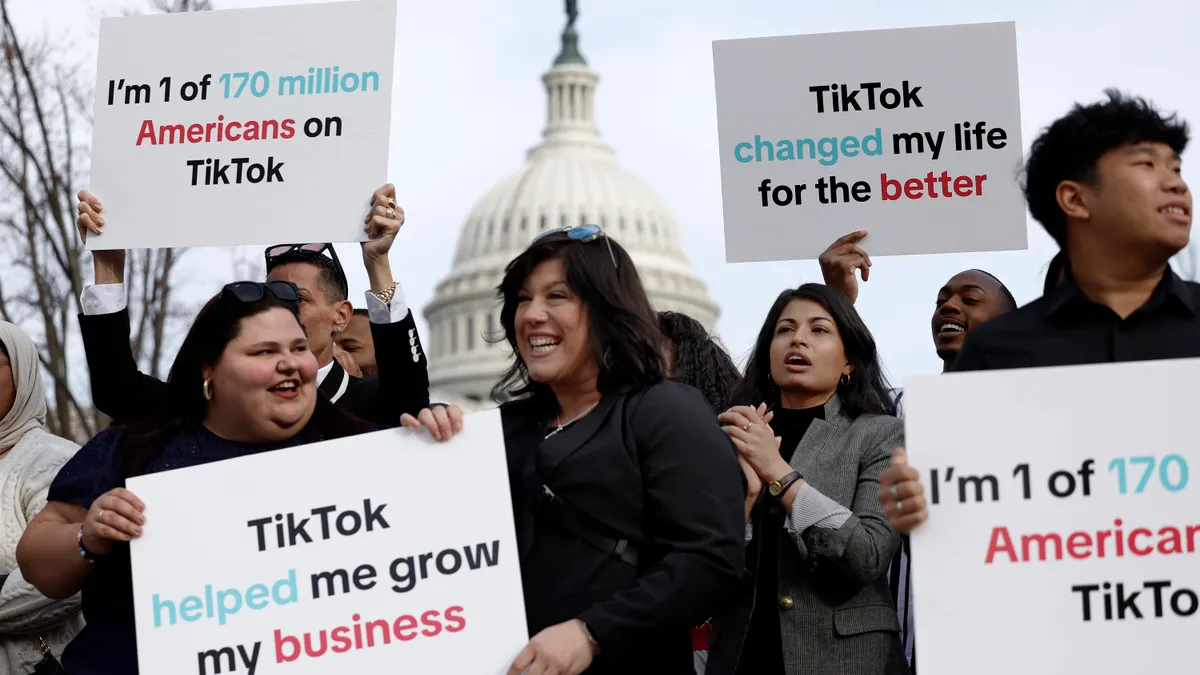This past week, marijuana advertising hit a new milestone when the New York Times published a full-page ad for Leafy – a mobile app that provides user reviews for dispensaries and different strains of marijuana. The ad marked the first ever cannabis advertising in the publication, and follows the passing of the Compassionate Care Act in New York State that allowed non-smokeable marijuana to be medically prescribed.
Amazing moment - First #Cannabis ad in @NYTimes #JustSayKnow pic.twitter.com/6cyDLSPWgy
— Leafly (@Leafly) August 2, 2014
The ad in the iconic Sunday edition of the Times draws into question the legality of marijuana advertising as a whole. In New York it’s a bit of a grey area, because federal law prohibits the advertising of illegal drugs but ads can be run if the content doesn’t explicitly try to sell the drugs directly. Because marijuana is medically legal in New York– and the ad is for a mobile app and not actual cannabis – the ad narrowly squeaks by as legal.
With recreational marijuana now legal in Colorado and Washington and medical marijuana legal in 23 states, more marijuana-related brands are looking to advertise to get ahead of the competition. This means publishers are facing complicated laws regarding what is legal and illegal. In 2011, federal prosecutors targeted publications that advertised for legal medical marijuana dispensaries in the state. In more recent years, marijuana related advertising – like the ad in the Times – has seemed to fly under the radar a bit more. Publishers running ads for marijuana-related businesses that don’t sell the drug directly seem to be popping up more often.
See how these marijuana related brands are approaching marketing in an uncertain market.
1. MarijuanaDoctors.com
In March, doctor-patient online portal Marijuana Doctors ran the very first TV ad for medical marijuana service on select cable stations in New Jersey. The spot featured a street dealer of sushi and ran the tagline “You wouldn't buy sushi from this guy, so why would you buy your marijuana from him?” The ad was meant to discourage buying marijuana on the black market in a state that allows the purchase for medicinal purposes.
Political ads promoting the legalization of cannabis have run on TV before, but the MarijuanaDoctors.com spot was the first ever televised ad for a commercial, for-profit cannabis business.
2. Beverly Hills Cannabis Club
The Beverly Hills Cannabis Club – based in California, where medical marijuana is legal and possession is decriminalized – is at the forefront of pot branding. Founder Cheryl Shuman is a recognized public figure as one of Moms Who Use Marijuana. Shuman is trying to appeal to the celebrities by pushing the idea that certain cannabis products stand out above the rest.
The Beverly Hills Cannabis Club exists to bring attention to so-called luxury cannabis brands. The site throws events and showcases reviews of marijuana products on its site. It also offers up tips to marijuana brands on how to market their products and finding ways to set the product apart as a luxury. In a recent cannabis event California Heritage Market, the Beverly Hills Cannabis Club reported being the only branded product participating – so the industry is only now catching on to the idea.
Shuman and her daughter have also signed a deal with Fremantle Media and filmmaker Morgan Spurlock for a reality show called “High Society” that will follow the mother-daughter pair through their struggles to build the brand.
3. Diego Pellicer
Advertising for the variations of cannabis strains has historically been frowned upon, but that may be about to change.. Premium marijuana distributor Diego Pellicer has turned its focus – rather than advertising – to the branding of its packaging and dispensaries. The brainchild of former Microsoft corporate strategist Jamen Shively, Diego Pellicer seeks to develop branding in a place where marijuana strains remains largely unbranded.
Diego Pellicer’s products are sold in a packaging that mirrors a fine cigar box. The brand also plans to open cannabis boutiques in Seattle and Las Vegas, which is a far departure from the bohemian vibes of most head shops. The brand’s goal is to present itself as one of the premier luxury brands of marijuana so that brand connoisseurs will pay more for a higher quality product. Peelicer and other cannabis dealers still face federal consequences and have to be careful about marketing nationally, but nothing is stopping the brand from positioning itself as a luxury until legality is no longer an issue.
Would you like to see more marketing industry news and information like this in your inbox on a daily basis? Subscribe to our Marketing Dive email newsletter! You may also want to check out Marketing Dive's look at 3 tactics publishers are using to retain readers (and impress advertisers).









